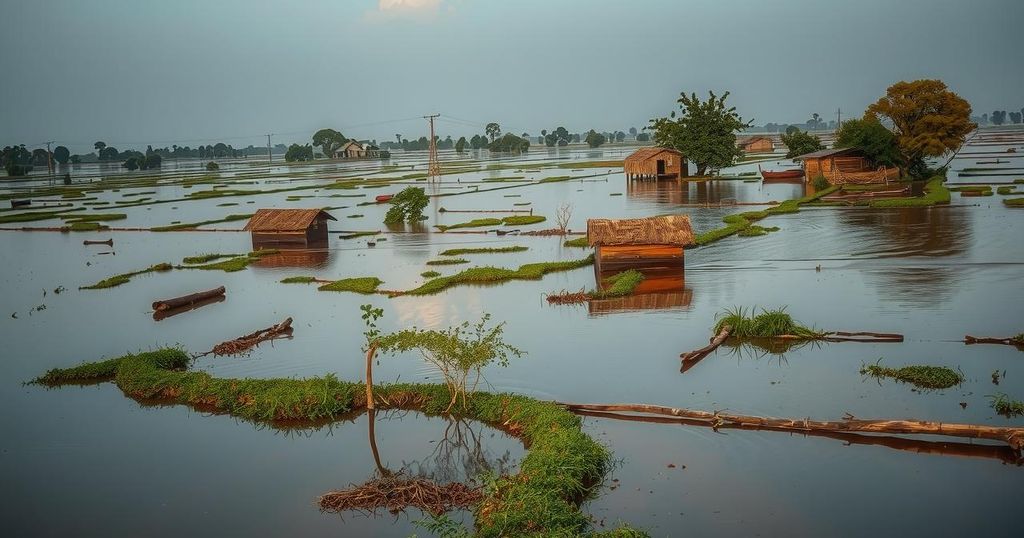Severe Flooding in South Sudan Displaces Over 1.3 Million, Warns UN
The UN reports that severe flooding in South Sudan has affected over 1.3 million people, displacing around 327,000 individuals. The floods have rendered major supply routes impassable, worsening humanitarian access as the country faces significant food insecurity amid ongoing adverse weather conditions.
The United Nations humanitarian agency has reported that severe flooding, exacerbated by heavy rainfall, has impacted over 1.3 million individuals across South Sudan. In a recent update, the UN Office for the Coordination of Humanitarian Affairs (OCHA) revealed that around 327,000 people have been displaced across 42 counties, including the Abyei Administrative Area. Joint assessments conducted by the government and interagency teams have identified an additional 230,000 people affected in Jonglei, Northern Bahr el Ghazal, and Upper Nile states. The flooding has rendered 15 significant supply routes impassable, critically limiting access to the areas in need of aid. The OCHA further indicated that humanitarian access has deteriorated due to ongoing adverse weather and impassable roadways, with many individuals seeking refuge on higher ground as their homes and infrastructures remain submerged. South Sudan is experiencing some of its most severe flooding in decades, leading to widespread destruction and increased food insecurity. The UN’s forecasts predict continued above-average rainfall and river flows from Uganda, which could result in record-breaking floods. South Sudan has been identified as one of the 18 global hunger hotspots, with a worsening food security situation expected in the coming months. In light of these circumstances, immediate attention and assistance are required to address the pressing needs of the displaced and affected populations, as the situation remains dire with limited access to essential resources and support.
The prevalence of flooding in South Sudan is attributed mainly to heavy seasonal rains that have intensified in recent years. This alarming trend has resulted in historical levels of displacement and loss of agricultural livelihoods, contributing to acute food insecurity and humanitarian crises throughout the region. The UN has emphasized the dire need for coordinated humanitarian efforts to mitigate the effects of such natural disasters, particularly as the country grapples with ongoing challenges related to infrastructure, security, and governance. The current flooding reflects a complex interplay between climate extremes, socioeconomic factors, and the need for resilient disaster response mechanisms.
In summary, the flooding crisis in South Sudan has significantly affected over 1.3 million people, resulting in mass displacement and destruction of vital infrastructure. The ongoing challenges of humanitarian access due to impassable roads further complicate the response efforts. The situation underscores an urgent need for international support to address both immediate and long-term needs, particularly in terms of food security as South Sudan faces one of the worst humanitarian crises exacerbated by natural disasters.
Original Source: www.thehansindia.com




Post Comment